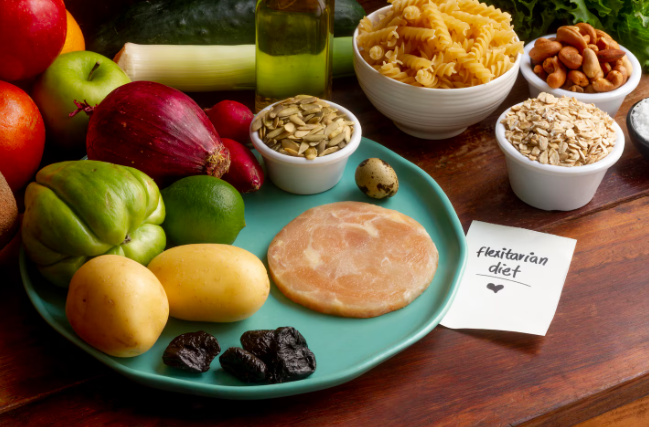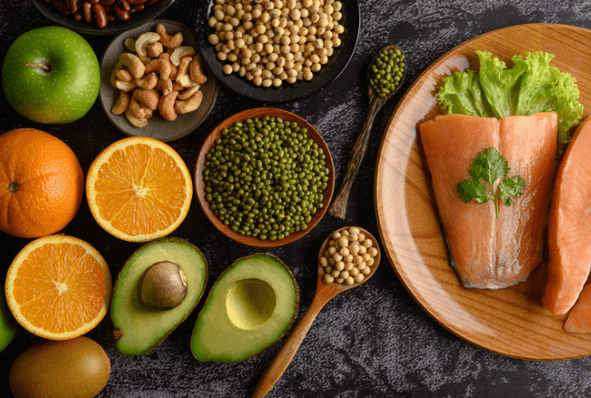In the past few years, foods for Gut Health Foods have been one of the foremost wellness trends in the States-and deservedly so. A healthy gut does much more than aid digestion; it also supports immunity, mood, metabolism, and even skin health.
When you feel bloated, sluggish, and on the fly, your gut is probably telling you something. We go into the best gut-friendly foods, how they work, and how to include them in your diet. Whether you are just starting with gut wellness or fine-tuning your diet, these foods will assist you in feeling your best.
Why Gut Health Foods Are More Important Now Than Ever
Millions of bacteria are hosted within the digestive tract-gut microbiome. These microbes help break down food and nutrients while also defending their hosts against harmful microbes.
When good bacteria and bad bacteria get out of balance (and this imbalance is called dysbiosis), you start experiencing gas, lethargy, poor immunity, or mood swings.
According to the National Institutes of Health, diet has the strongest effect on your gut microbiome. In other words, you eat something, and you will feel good or bad. So, it is always beneficial to include gut-friendly foods in your diet.
Fermented Foods- Nature’s Probiotics
Fermented foods are considered best conspicuously in Gut Health Foods. These foods contain the so-called live beneficial bacteria, or probiotics, that re-establish the flora of your bowel with healthy microbes.
Best Fermented Foods to Promote Your Gut Health
- Yogurt (unsweetened): It contains Lactobacillus and Bifidobacterium; select any brand marked with “live and active cultures.”
- Kefir: Drinkable, tart milk with a higher concentration of probiotic strains as compared to the standard yogurt.
- Sauerkraut: Fermented cabbage full of probiotics and fiber to improve your digestion.
- Kimchi: Spicy Korean cuisine with fermented vegetables, garlic, and chili.
- Kombucha: A fizzy fermented tea for digestion, so just opt for less sugar!
Tip: Include a minimum of one fermented food on a daily basis. For example, a few spoonfuls of sauerkraut or a half-cup of kefir would do.
High-Fiber Foods Feed Good Bacteria
Prebiotics feed the probiotics. Specifically, these are plant fibers that your body can’t digest; however, they survive the digestive process and, as a result, nourish the good bacteria in your gut, thereby keeping the microbiome balanced and diverse.
Best Prebiotic Foods
- Oats: Full of beta-glucan fiber that helps with the growth of beneficial bacteria.
- Garlic and Onions: Contain a lot of inulin, a prebiotic fiber that aids digestion.
- Bananas: Unripe or slightly green give your gut resistant starch as a source.
- Asparagus: It is loaded with fiber and antioxidants that support good bacteria.
- Chickpeas and Lentils: They provide fiber that helps keep regular digestion steady.
Pro Tip: Most Americans consume only half of the recommended daily fiber (25–30g). Start introducing this food gradually to minimize bloating while your gut heals.

Foods Rich in Polyphenols for Gut and Heart Health
Polyphenols are natural substances in plants with antioxidant and anti-inflammatory activities. They not only protect cells but also nourish the good bacteria therein.
Best Polyphenol Foods
- Berries (blueberries, raspberries, strawberries): Lower in sugar but rich in antioxidants.
- Green Tea: Contains catechins that stimulate metabolism and create a balance in microbiota.
- Dark Chocolate (70%+ cacao): Polyphenol-rich and delicious—eat in moderation.
- Olive Oil: The cornerstone of the Mediterranean diet, it fosters bacterial diversity in the gut.
- Red Grapes and Wine Contain resveratrol, which plays a role in heart and gut health.
Plant-Based Foods for a Balanced Microbiome
Eating plant-based foods is one of the best strategies for a healthy gut. Moreover, the fibers and antioxidants found in plants help to nurture a broad spectrum of good bacteria and, as a result, support overall digestive health.
Examples
- Leafy Greens (spinach, kale, arugula): Contain fiber and magnesium, promoting smooth digestion.
- Sweet Potatoes: This provides resistant starch and antioxidants that further protect the gut lining.
- Avocado: These nuts offer healthy fats and fiber that can work to reduce inflammation.
- Nuts and Seeds (almonds, chia, flaxseed): This provides your body with omega-3 fats and prebiotic fiber.
Simple Swap: Replace a meat-based meal once each week with a plant-based bowl loaded with veggies, beans, and grains. Your gut will start thanking you for that over time.
Bone Broth and Collagen for Gut Repair
Bone broth is really the wonder drink in modern America, and the recipe churns out gelatin, collagen, and amino acids that counteract the deterioration of the intestinal lining, which, in turn, aids in the absorption of nutrients.
You can sip warm bone broth in the morning or use it as the soup base for the day. Meanwhile, for plant-based eaters, nutrients such as vitamin C, zinc, and copper help to build collagen naturally in the body, thereby supporting gut and overall health.
Foods to Limit for a Healthier Gut
Not all foods contribute to gut balance. In fact, some may cause damage to your digestive tract, while others, on the other hand, may encourage the growth of harmful bacteria.
Limit or Avoid
- Processed foods: The additives that are incorporated inside make them a low-fiber option.
- Refined sugars: Feed the bad bacteria and yeasts.
- Artificial sweeteners: Could hamper the balance of the microbiota.
- Excessive alcohol: Will kill off good bacteria; it also damages the gut lining.
Rule of Thumb: Eat whole foods that are natural and minimally processed. If a food grows in nature, then most probably it’s good for the gut.
Lifestyle Tips for Better Gut Health Foods
- Good digestion does not rely solely on food: Your daily activities also influence gut functioning.
- Hydration: Water actively helps the smooth passage of food in the digestive tract.
- Exercise: Any light movement will help increase the diversity of good bacteria.
- Stress management: Chronic stress slows digestion and messes with gut balance.
- Sleeping habits: Try to get 7-8 hours conducive to repairing your gut.
- Being antibiotic smart: Too many of them could wipe out both good and bad bacteria.
- Consistency: Inconsistency and an irregular diet will hinder your Gut Health.
American Gut: The Shift Toward Wellness in the United States
In the U. S., an increasing number of people are embracing a gut-friendly diet. Grocery stores boast whole probiotic sections, and restaurants feature fermented side dishes. Nutritionists continue to champion Gut Health Foods as a foundation for long-term wellness.
And the best part? It really does not need to be exotic. The gut can be returned to its balance simply by eating a wide gamut of fiber-rich, fermented, and plant-based foods. Over a period of time, one can see improvements in digestion, energy levels, and overall immunity.
Conclusion
The gut is the control center of the body. It controls digestion, immunity, and mental clarity. Choosing gut health foods is not a passing trend; it is a lifestyle sustained by proven facts.
Start small. Add yogurt to breakfast, swap white bread for oatmeal, or have a banana instead of chips. Every small step nurtures gut health, promoting overall well-being.
